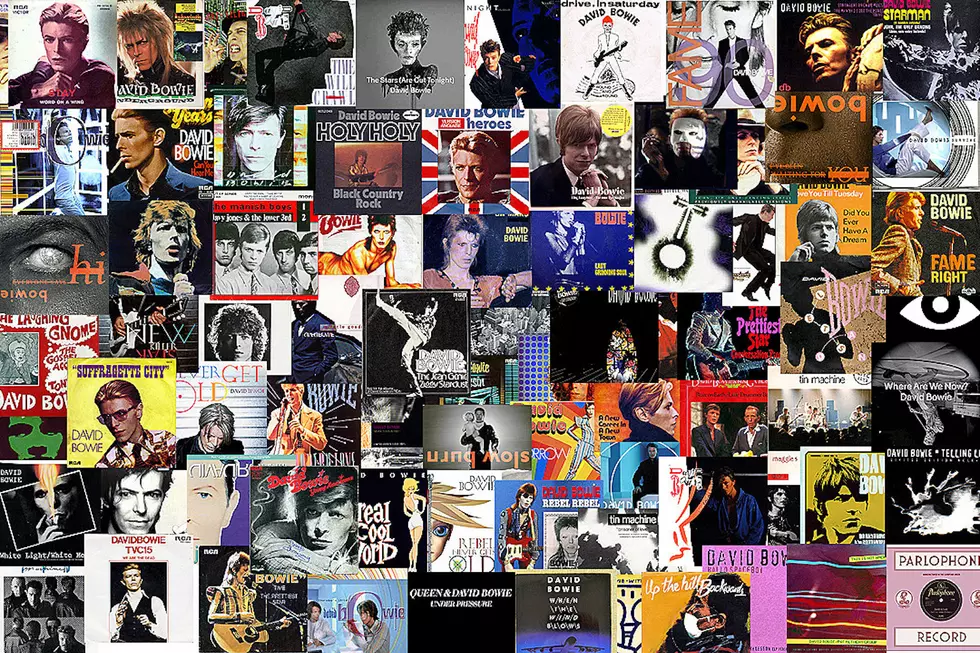
45 Years Ago: David Bowie Retires … Again
On April 12, 1975, David Bowie retired from music for the second time.
As written in a September 1976 Playboy interview conducted by Cameron Crowe, Bowie said, "I've rocked my roll. It's a boring dead end. There will be no more rock 'n' roll records or tours from me. The last thing I want to be is some useless fucking rock singer."
Bowie's capriciousness wasn't unprecedented; in fact, he had announced his retirement already once before, in July 1973, at the height of Ziggy Stardust mania. In that case, he played up the confusion surrounding his announcement -- was he really leaving the road forever, or was he just putting his Ziggy Stardust persona out to pasture? -- in order to drum up publicity and create mystery.
It certainly worked: At the time of his second retirement, Bowie's musical career seemed to be doing just fine. 1974's Diamond Dogs was a Top Five hit in the U.S., and the musician spent the majority of the year on a tour of the States that switched gears midway thorough. In March 1975, the musician released the soul- and funk-tinged Young Americans, an album that had spawned the hit title track and (later in 1975) gave him his first U.S. No. 1, "Fame."
Bowie's personal life was a different story. His dabblings with cocaine had escalated into a crippling addiction by the tail-end of 1974. Describing the scene at a September seven-night stand in Los Angeles, NPR says: "The Bowie on display there is an unsettling sight: fidgety, awkward and alarmingly thin and pale, he's intelligent but remote and removed; at other times he's in the throes of cocaine paranoia, wondering whether his car is being followed, sniffling and licking his gums."
In the 1976 Playboy interview, Bowie, who reportedly stated around this time that his diet consisted solely of "red peppers, cocaine and milk," was flippant about this drug use. "I suppose I’ve been knocking on heaven’s door for about 11 years now, with one sort of high or another. The only kinds of drugs I use, though, are ones that keep me working for longer periods of time." Still, he seemed to bristle slightly when Crowe brought up a not-so-flattering review of Young Americans, which called it “a fucked-up LP from a fucked-up rock star.”
"The Man Who Sold the World is actually the most drug-oriented album I’ve made," Bowie replied. "That was when I was the most fucked up. Young Americans probably is a close second, but that is from my current drug period. The Man was when I was holding on to some kind of flag for hashish. As soon as I stopped using that drug, I realized it dampened my imagination. End of slow drugs."
Bowie's second bold proclamation of retirement didn't last long, either. By the fall, he was in the studio recording what would become Station to Station, and he was gearing up to re-emerge as the Thin White Duke. As to why he decided to retreat (and then changed his mind), he remained elusive; when Crowe asked him how he "rationalize[d] these contradictions," Bowie's answer was typically elliptical.
"I lie. It’s quite easy to do. Nothing matters except whatever it is I’m doing at the moment. I can’t keep track of everything I say. I don’t give a shit. I can’t even remember how much I believe and how much I don’t believe. The point is to grow into the person you grow into. I haven’t a clue where I’m gonna be in a year. A raving nut, a flower child or a dictator, some kind of reverend–I don’t know. That’s what keeps me from getting bored."
Every David Bowie Single Ranked
More From Ultimate Classic Rock









